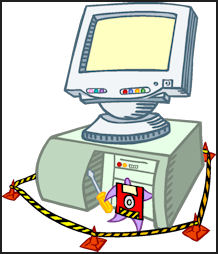Business persons beginning an at-home business or a small to medium enterprise rarely think of factors that impact their business. Their energies are dedicated to sales and marketing, quality control, payroll, and insurance in addition to a dozen other things. Only when an impact to the business occurs does the business owner suddenly think of what else could happen along the same lines.

“I just had to have the 5th bar of chocolate… OHHMMmhhmmhh”
However, the business person also rarely understands that analytic thinking, as well as considering the internal human factors that affect business, sets them up for relationships other than business. The human factor is about life lessons and being the best person the business owner can be.
Economics: All About The Benjamins
Understanding demographics and buying decisions is part of starting and running a business. How customers spend their money says a lot about the individual. In the same vein, why employees work for the business says a lot for the business’ service or product. If the employee believes in the service or product they tend to be honest, trustworthy and dedicated. In-house theft and financial skulduggery is one of the most harmful internal factors that affects business.
Cash flow is another internal factor the business owner needs to consider. If the economy slows down or dies, it will affect sales. Increased competition or even the loss of competition will change the financial dynamic of the company. This isn’t easy to predict, but economic changes will mean steps in which reduction in forces, downsizing or outsourcing work will become necessary. These are large-scale internal factors that should be considered.
Physical: Let’s Get It, Already
When physical forces affect the human factor, it takes a superhuman to forget the pain and concentrate on business. Sales suffer, customer service is non-existent and time lost from work due to disaster or accident means unhappy humans. The business owner analyzing these scenarios will see that reliable research into safety measures will pay off in happier customers, employees, and especially the insurance company.
Here are a couple of examples to consider
- A customer is arriving at the home to conduct business. She slips on the sidewalk and twists her ankle. The business owner has insurance which handles the situation. The customer, however, does not return for fear of further harm.
- An employee operating a slicer using meats and vegetables for sandwiches. The employee slices skin off along with the meat and requires ER treatment. Again, insurance pays for it, but the employee becomes a former employee who seeks safer work.
- A tropical storm hits the town in which the business person operates and it smashes the windows of the store or office. Thank God for insurance.
Technology: Better, Faster, Stronger, BEEP

Sigh. I hate it when my floppy disk stops working, too.
Computers crash. A power surge adversely affects machinery. Not enough down time to service machinery and other technology used by the business destroys the machinery. Employees can’t work, consumers don’t get the product and sales suffer. The at-home business person or the small to medium enterprise depends on the human factor to keep the gears oiled and the machinery working. Business persons anticipating such maintenance will also recognize the importance of the human factor in technological maintenance and advances.
Business Is About People
The at-home business owner as well as the small to medium enterprise owner who considers the internal factors that impact business takes a serious approach in considering his people. The owner puts people first, which makes a business grow. Putting people first also makes the business person a better family member and friend.
Anticipating the quirks and malfunctions of people isn’t easy (though there is help for this). Considering safety, economics, and technology in relation to sales and marketing, quality control and other aspects of business means the human factor will optimally affect business instead of adversely.